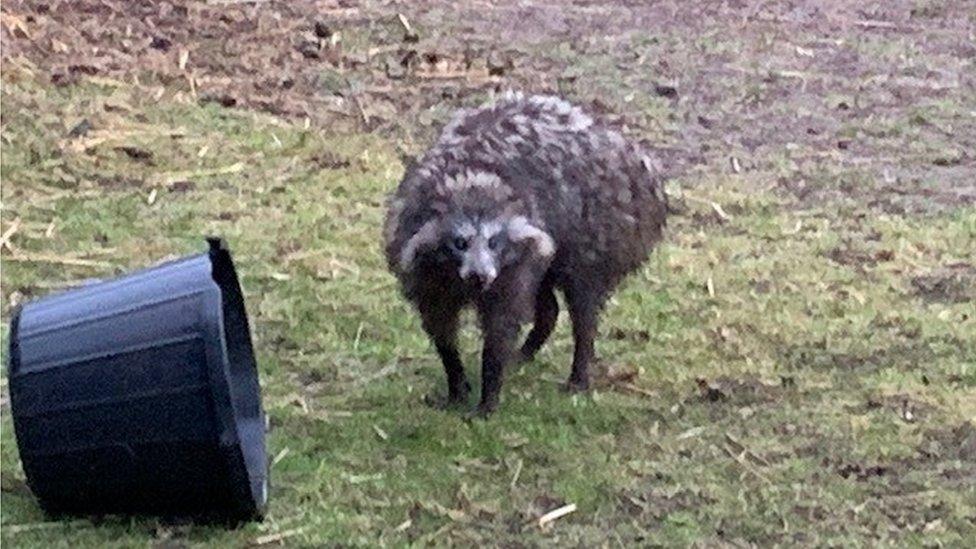Raccoon dog capture sought by environment minister Lesley Griffiths
- Published
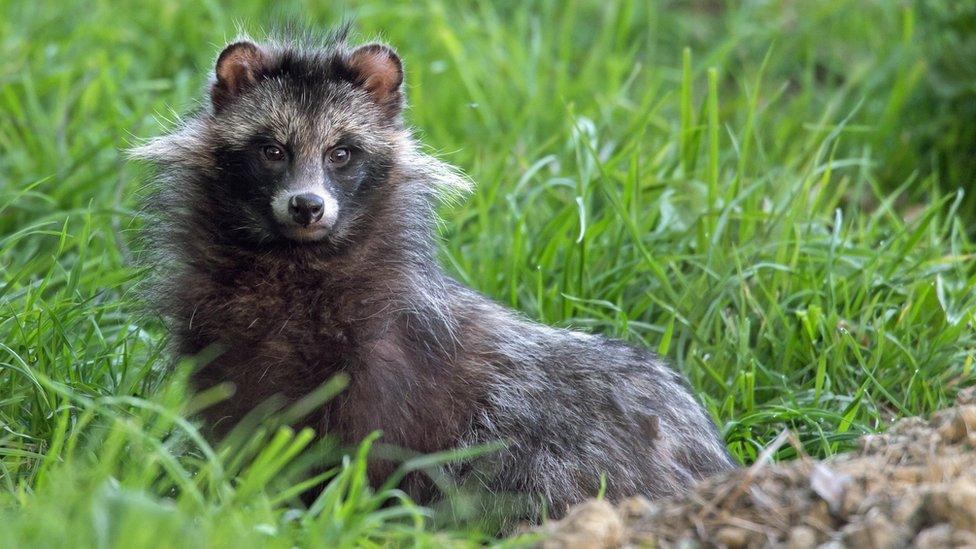
The raccoon dog is closer to a fox than a dog
A raccoon dog sighted in Carmarthenshire should be captured, Wales' environment minister has said.
Lesley Griffiths said she expects Natural Resources Wales to "apply rapid eradication measures in line with the EU Regulation".
Dyfed-Powys Police urged the public not to approach the animal, seen near Pumsaint, and to contact the RSPCA.
The charity "strongly discourages anyone from keeping" the "extremely smelly" animals as pets.
The raccoon dog is a fox-like creature native to East Asia that has a similar face to a raccoon but is a member of the canine family.
Natural Resources Wales told BBC Wales they received, and have confirmed, a report by a member of the public of a raccoon dog seen near Pumsaint, which is around seven miles south-east of Lampeter, on 27 May.
They said this was the second report of a raccoon dog in the wild in Wales, after a confirmed report of two raccoon dogs having escaped near Esgairdawe, Carmarthenshire in August 2019 - neither of which were captured.
The species has previously been reported elsewhere in Britain.
The Welsh Government said last week the minister had "agreed for officials to formally request assistance from NRW to capture the raccoon dog and apply rapid eradication measures in line with the EU Regulation on the prevention and management of the introduction and spread of invasive alien species".
Asked about what happened between the sighting and the minister's decision last week a spokeswoman said that "a number of actions were undertaken to put in place arrangements to manage the situation".
What are raccoon dogs?
Native to the forests of eastern Siberia, northern China, north Vietnam, Korea and Japan
Now widespread in some European countries due to escapes
Omnivores that feed on insects, rodents, amphibians, birds, fish, molluscs and carrion
The RSPCA "strongly" discourages people from keeping them as pets
"Extremely smelly", the charity says, as they use a scent to communicate
Source: RSPCA, external
In February 2019 the European Union added raccoon dogs to a List of Invasive Alien Species of Union Concern, which seeks to control populations deemed to be harmful to native wildlife.
Existing owners can keep the animals, but further breeding or sale is banned.
It is also an offence under the Wildlife and Countryside Act 1981 (as amended) to release these animals - or allow them to escape - into the wild because they are not a native species to the UK.
Originally from the Far East, raccoon dogs were introduced into eastern Europe as part of the fur trade.
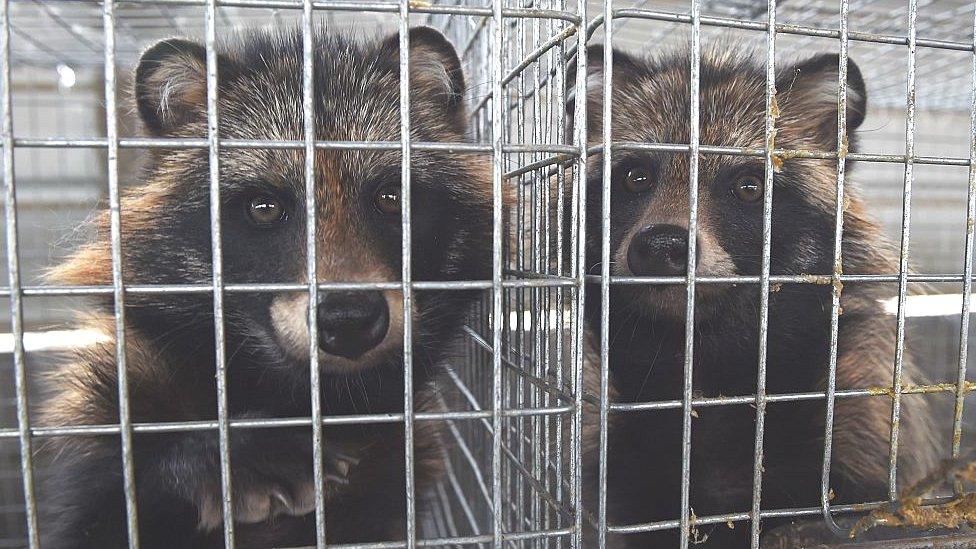
Raccoon dogs are farmed for their fur around the world, including here in China
What some people may perceive as a cuddly appearance meant until relatively recently they were openly traded as exotic pets, which the RSPCA (Royal Society for the Prevention of Cruelty to Animals) emphasises is a bad idea.
A RSPCA spokesperson said: "It is exceptionally difficult to meet the needs of raccoon dogs as pets in a typical household.
"These animals require a great deal of space, can be quite destructive to homes and are extremely smelly as they use their scent to communicate with one another.
"RSPCA Cymru has long been concerned about trends of keeping raccoon dogs as pets. We strongly discourage anyone from keeping them as a pet."
They added, "we hope the raccoon dog is safely captured and transferred to suitable facilities where it can live out the rest of its life."
A Natural Resources Wales representative said: "NRW is supporting Welsh Government, the police, and the Great Britain Non-Native Species Secretariat.
"If you think you might have spotted a raccoon dog (dead or alive) please report this as soon as possible to the NRW incidents telephone line on 0300 065 3000 (this is a 24 hour line) along with the location/grid reference and, if possible a photo or video footage.
"As with any wild animal, their behaviour may be unpredictable and they should not to be approached."
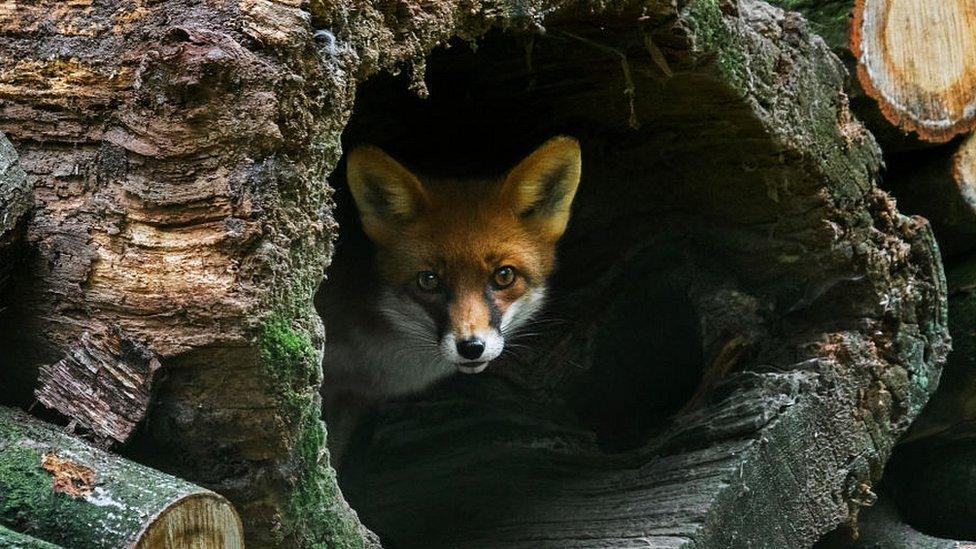
Raccoon dogs could compete with native foxes and badgers for food and shelter
- Published3 April 2020
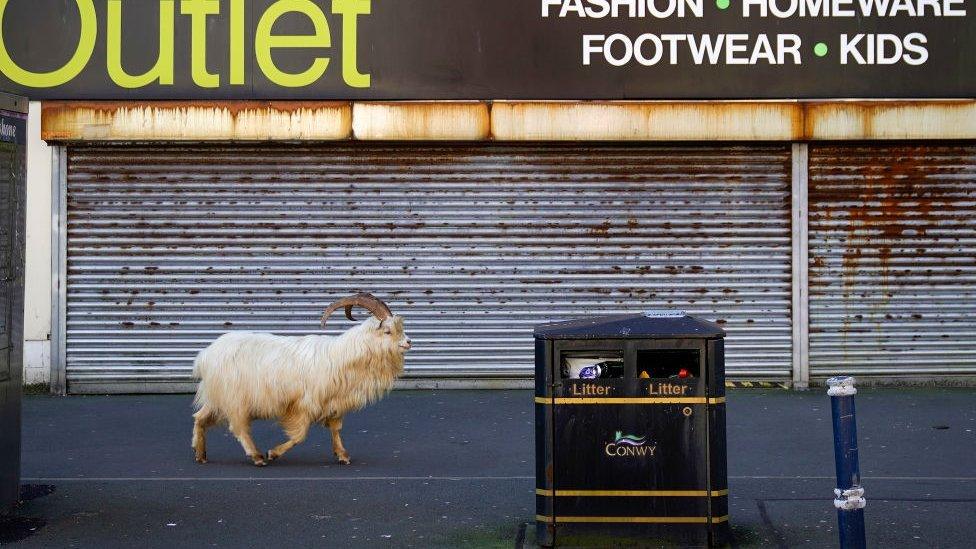
- Published25 January 2020
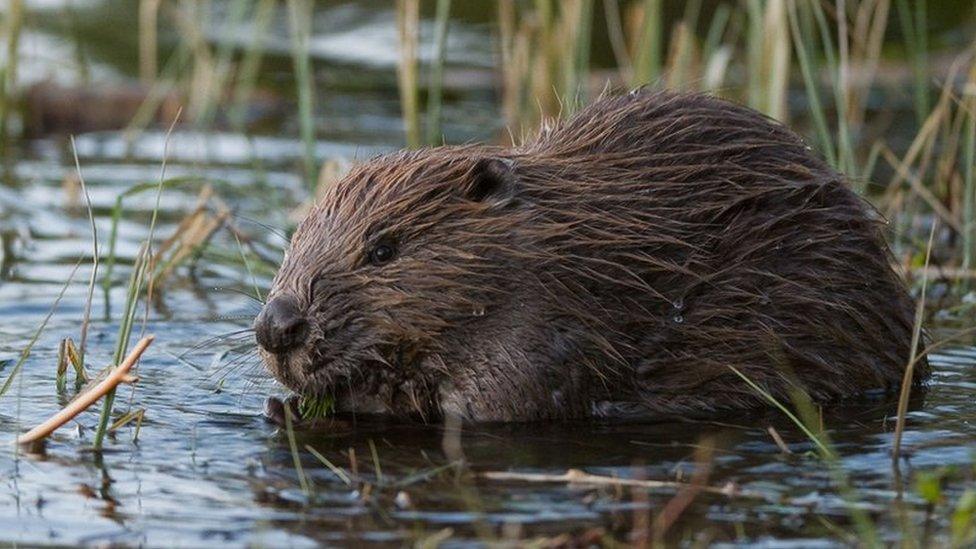
- Published3 October 2019
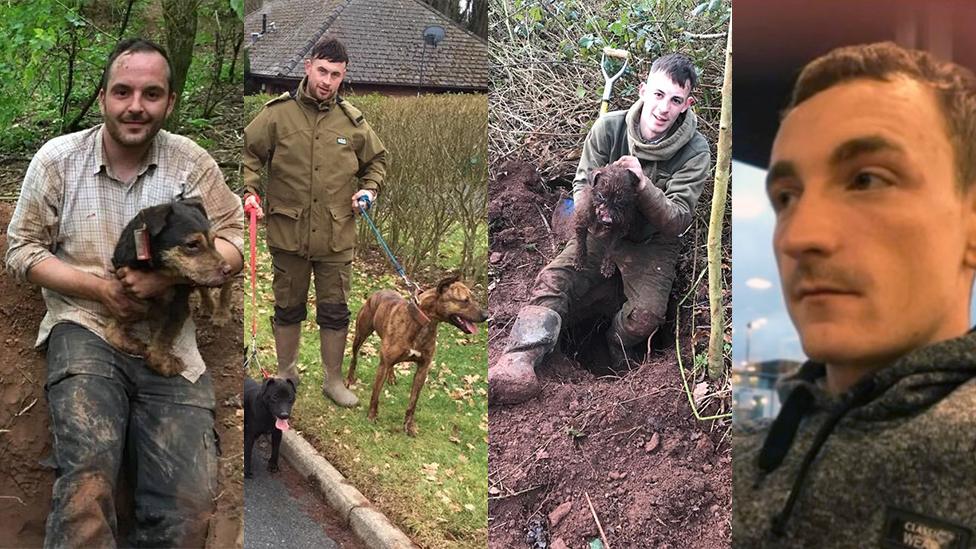
- Published1 June 2019
